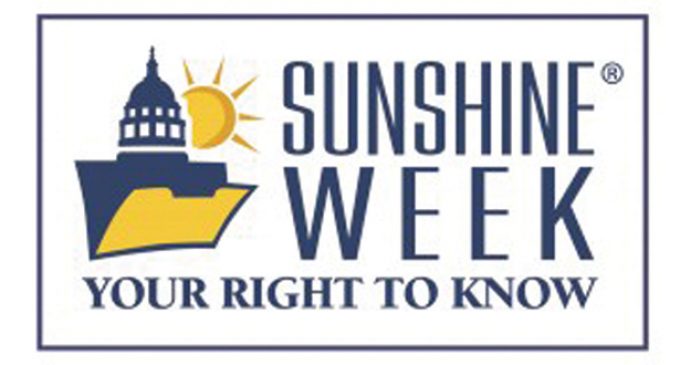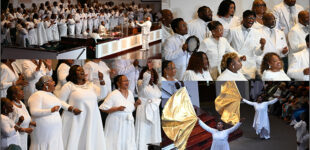To record law enforcement or not: Is it wrong?

In these days, in which everything is digital, it should be no surprise that a person’s first instinct when witnessing something is to record it.
In these days, in which many in urban communities distrust the police because of recent incidents in New York, Los Angeles and Ferguson, Missouri, the need to record it all is enhanced.
Those videos have become more of a checks and balances for many law enforcement officers.
“For many people, their first viewing of a citizen recording, not a recording by a photographer or news reporter, was the Rodney King beating in 1991. This was powerful and the recording had an impact on public opinion and the trials,” said Kimya N. Dennis, assistant professor in the department of Sociology and Criminal Studies at Salem College. “Yes, citizens have the legal right to record law enforcement as long as it does not interfere with law enforcement’s job or cause a distraction. This ongoing debate across the country over the years has been driven by overall distrust of law enforcement and the push for citizens to be proactive in holding law enforcement accountable.”
Kami Chavis Simmons, professor of law and director of the Criminal Justice Program at Wake Forest University, also said that the use of cell phone cameras is an incredible tool for police accountability.
“A lot of police officers are aware that citizens, and public faces, are under video surveillance. In many cases, there are dash-cams to record the behavior of police officers,” she said. “There are studies, one in Rio Alto, Calif. and Mesa, Ariz., that confirms that when officers are wearing body cameras that complaints against those police and uses of force decrease. Part of that is when the public knows that they are also being recorded, then they change their behaviors as well.”
North Carolinians have the right to record officers’ interaction with another resident if that resident gives permission.
According to the American Civil Liberties Union, taking photos of things that are plainly visible from public spaces is a constitutional right and that includes federal buildings, transportation facilities’ and police and other government officials carrying out their jobs.
When in public spaces where you are lawfully present, you have the right to photograph anything that is in plain view, except when you are on private property, where the owner can set the rules. Officers cannot confiscate or demand to view photos or videos without a warrant.
The U.S. Supreme Court has ruled that police may not search your cell phone when they arrest unless they have a warrant.
In June 2014, the Supreme Court unanimously ruled that police must obtain a warrant before searching the contents of a cell phone seized by someone who has been arrested, in the Riley v. California case.
Chief Justice John Roberts wrote in the court’s opinion that cell phones are not just a modern convenience but that they contain the privacies of Americans. “The fact that technology now allows an individual to carry such information in his hand does not make the information any less worthy of the protection for which the Founders fought,” he said.
Dennis said that there have been instances of officers seizing recording devices but those do not override the rights of citizens to record law enforcement. “Two most noted instances are Felicia Gibson, 2009 in Salisbury, and Emily Good, in Rochester, N.Y. in 2011. These are illustrations of how it is not always as simple as a citizen having a recording device and, from the perception of law enforcement, conducting a recording of the incident that is not distracting,” she said. “Felicia Gibson, for example, was considered by the law enforcement officer to be causing a distraction during a traffic stop and high speed chase”. The ACLU believes that the law applies to stand-alone cameras and other digital data.
That can change if courts approve the temporary warrantless seizure of a camera in extreme circumstances where the device would be necessary to save a life, or to prevent the destruction of evidence.
Officers can’t delete photographs or tamper with memory/data cards and they may legitimately order citizens to stop recording if they are interfering with law enforcement operations. “Depending on the circumstances, recording law enforcement does not necessarily inhibit or distract law enforcement. Citizens have to be careful not to interfere, distract, or place themselves in harms way,” Dennis said. “Citizens also need to be careful not to “take the law into their own hands”.”
If you are stopped or detained for taking photos, the ACLU asks that residents remain polite and never physically resist an officer.
In many states, there has been talk of passing legislation that would make it difficult or illegal to record, audio or visual, in a public place because it violates wire tapping or eavesdropping laws.
In Illinois, a bill was passed that made it a felony to secretly tape private conversations. That law has since been revised so that the part that would make it a felony for citizens to record public interaction with law enforcement and residents was removed.
While it is technically legal to record on-duty police officers in every state in the country, residents should be aware of other laws that deter it. Residents are often creating a sense of accountability for those officers that have sworn to protect and serve. So have we come to the point where residents are policing the police?
“The Eric Garner incident reminds many people of the Rodney King incident. Law enforcement have dash-cameras in their cars and many law enforcement departments use recording devices on their uniforms,”
Dennis said. “Citizen recordings only create checks and balance for law enforcement if we can trust citizens are catching the full incident, are not editing the recordings, and are not interfering with law enforcement’s job.”
Simmons said that some people, both the general pubic and officers, fear that the cameras can change officers behaviors that could endanger them or the public.
“The idea is, are they concerned that something on that tape could be misconstrued as unnecessary force or improper, and we call that the chilling effect undo cameras may have on policing. There is an important balance that we need to strike between being transparent and protecting officer safety,” she said.
“I think the cameras are good for transparency and accountability.
“You don’t want officers to risk their safety, but at the same time, as long as they are executing their job properly, the law is actually very favorable, as we have seen in the Eric Garner and Michael Brown cases.”















